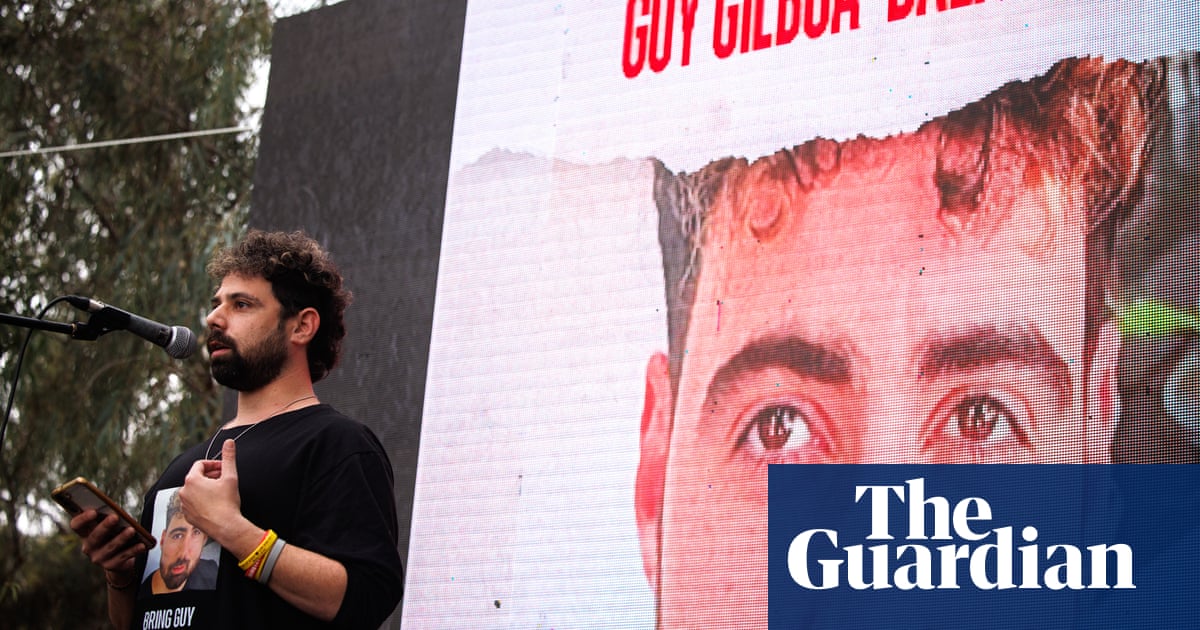
You would think, would you not, that after more than 75 years of being in places where it is not wanted, Israel would have grown accustomed to the opprobrium it inevitably attracts: but evidently not.
The latest example of the country’s tone-deaf inability to read the room came, appropriately enough, at the Eurovision Song Contest, a unique combination of nationalist hubris and cultural kitsch, which took place last weekend in the Swedish city of Malmo.
Unaccountably, Israel entered this farce: I say unaccountably because, unless a causeway to Cyprus has appeared overnight, a glance at a map confirms that Israel is nowhere near Europe. Predictably, there were protests in the streets of Malmo against Israel’s presence.
On the surface, there appears to be little connection between the horrors of Israel’s vengeful and murderous assault on the Palestinian people in Gaza — atrocities that have prompted protest marches not just in Sweden but throughout the world — and whether an Israeli woman should be permitted to sing in a silly song contest.
But of course there is a connection.
The motley crew of deranged fruitcakes, oddball religious extremists and convicted terrorists currently masquerading as Israel’s elected government, led by a prime minister who belongs in jail, are far less terrified of Hamas and Hezbollah than they are of Boycott, Divestment and Sanctions — the Palestinian-led movement that aims to isolate Israel economically, politically, socially and culturally. When the resistance to Israel’s occupation of Palestinian territory takes military form, it is easy to send in the troops to crush them, killing tens of thousands of innocent Palestinian women and children in the process. But you cannot deploy the Israeli army to police an art exhibition, a literary festival — or, for that matter, a European song contest — to enforce Israel’s point of view. That is why Israel is losing the moral battle with BDS.
You cannot deploy the Israeli army to police an art exhibition, a literary festival — or, for that matter, a European song contest
Ross Anderson
It is also why the first person to raise his head above the parapet in defense of Eden Golan, the 20-year-old chanteuse who performed Israel’s song contest entry, was, inevitably, Benjamin Netanyahu — not a man you immediately identify with laugh-a-minute entertainment, unless you count that time he appeared at the UN with an Inspector Clouseau-style drawing of a bomb. In defying the protesters, “you’ve already won,” Netanyahu told the Israeli singer.
She did not, of course. Although for Israel that may have been a blessing in disguise. The actual winner was a Swiss man in a dress who identifies as nonbinary. In that sort of woke and diverse company, it is difficult to see how conservative Israel could possibly have emerged with any sort of credit.
The more serious point, however, is that in even competing, Israel was given a free pass by the Eurovision organizers, a policy that also applies elsewhere. For example, since 1991, Israel’s international and club football teams have played in competitions regulated by UEFA, the governing body of European football, instead of the Asian Football Confederation, home to every other country in the Middle East. There are practical reasons for that: if Israel were to rejoin the AFC, having been expelled in the 1970s, they would play vanishingly few matches, since no other Middle East team would be seen in the same stadium.
Nevertheless, one can only imagine the conversation at the former UEFA headquarters in Bern, Switzerland, when Israel’s application for membership dropped on the doormat.
— “Look at this, Lennart, Israel have applied to join UEFA. Apparently, no one else wants them.”
— “Don’t be silly, Israel is nowhere near Europe. Tell them to try Asia.”
— “Oh, picky, picky, picky. Look, their teams are a bit rubbish, so they aren’t going to win anything. And it’s not as if some Arab gazillionaire is going to buy Maccabi Haifa and turn them into the Manchester City or Paris Saint-Germain of the Middle East, is it?”
— “Oh, all right, go on then. As long as you can promise me they’ll never qualify for the World Cup finals. Can you imagine the grief we’d get?”
And so, another free pass.
In even competing, Israel was given a free pass by the Eurovision organizers, a policy that also applies elsewhere
Ross Anderson
There are more. I give you “Fauda,” the Israeli TV series that glorifies the exploits of a special anti-terror unit in the Israeli army, and four seasons of which are available on Netflix. I gave up after two episodes: it is risible. The characters are stereotyped cardboard cutouts, the dialogue is stilted and clumsy, and even over four seasons there is only one plot — Palestinian bad guys do bad things, Israeli heroes kill them. Viewers will seek subtlety or nuance in vain. If this dross had been created by any semi-competent Western TV production company, it would have been canceled after one season. But to read the gushing reviews by Western critics, you would know nothing of that. The New York Times voted “Fauda” among the best international shows of 2017.
I am reluctant to believe that all these critics have taken leave of their senses and, in fairness, there have been some more accurate appraisals — tellingly, from inside Israel. The Haaretz reviewer wrote: “The Middle East is already bursting with disinformation, insinuations and dangerous propaganda: there’s no need for yet more.”
The only explanation for this Western critical myopia is the bizarre view that for plucky little Israel, surrounded by enemies intent on its destruction, producing any sort of TV drama is a triumph in itself. In other words, a free pass. Perhaps the earliest example of this patronizing superciliousness was when the 18th-century English man of letters Dr. Samuel Johnson was asked for his opinion on women holding positions of authority in the Church of England. “Sir, a woman’s preaching is like a dog’s walking on his hind legs,” he said. “It is not done well, but you are surprised to find it done at all.”
Ross Anderson is associate editor of Arab News.












